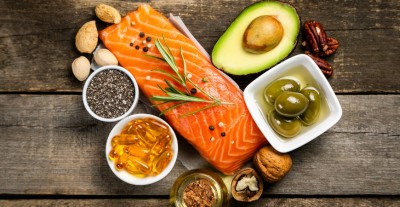Immunity: strengthen your defenses during the winter period
Introduction: Immunity Tested by the Winter Months
Every start of the year marks a period when our health is severely tested. Between freezing temperatures, the increase in seasonal epidemics, and the repercussions of the holiday season, our immune system is constantly in demand. After weeks where overeating, stress, and sometimes lack of sleep weaken our defenses, the first months of the year remind us of the importance of strengthening our immunity.
The flu-like state, often perceived as a simple temporary inconvenience, is actually a warning signal: our body is fighting to ward off viral and bacterial attacks. In this article, we will delve deeply into the mechanisms that support our immune system, the reasons why it can be weakened in winter, and concrete solutions to optimize it. In addition, suitable nutritional products will be presented to you to get through this season in top shape.
1. The Immune System: A Wonder of Nature
1.1. How does the immune system work ?
The immune system is a complex and perfectly orchestrated network that ensures the protection of our body against external aggressions (viruses, bacteria, fungi). It relies on three major lines of defense:
-
Physical and chemical barriers The skin acts as a protective wall, while the mucous membranes produce secretions such as saliva and mucus, which trap pathogens and prevent them from entering the body. In addition, enzymatic secretions, like the lysozyme found in tears and saliva, destroy the walls of bacteria.
-
Innate immunity : This first line of internal defense is fast but not specific. Macrophages, neutrophils and dendritic cells destroy intruders and trigger inflammation to recruit more immune cells.
-
Adaptive immunity : Slower but extremely precise, it targets specific pathogens. B lymphocytes produce antibodies, and T lymphocytes eliminate infected or abnormal cells. This system also retains an immune memory, allowing for a faster response when exposed again to the same pathogen.

1.2. The key organs of immunity
The immune system relies on a network of specialized organs and tissues, each playing a crucial role in immune responses:
-
The thymus : Located behind the sternum, this organ educates the T lymphocytes, allowing them to distinguish normal cells from intruders.
-
Bone marrow : Responsible for the production of white blood cells, it constitutes the primary source of immune cells.
-
The spleen : She acts as a blood filter, eliminating infectious agents and stimulating the production of antibodies.
-
The lymph nodes : These bean-shaped structures, distributed throughout the body, are coordination centers where immune cells exchange information to organize a targeted response.
-
The gut microbiota : Housing billions of microorganisms, it actively communicates with the immune system to modulate inflammatory responses and strengthen intestinal barriers.
-
Oral microbiota : Often overlooked, it plays a key role in the first line of defense against pathogens. A balanced oral flora protects against dental and oropharyngeal infections, while an imbalance can weaken overall defenses by allowing bacteria to enter the bloodstream.
1.3. The micronutrients essential to the immune system
To function optimally, the immune system requires a regular intake of essential micronutrients. These act as catalysts in many biological processes related to immune defense:
-
Vitamin C : This powerful antioxidant neutralizes free radicals produced during infections and improves the efficiency of phagocytes, the cells responsible for eliminating pathogens. It is also essential for the regeneration of other antioxidants, like vitamin E.
-
Vitamin D : Its role goes far beyond bone health. It modulates the activity of T and B lymphocytes, promotes the production of natural antimicrobial agents, and limits excessive inflammatory responses.
-
Zinc This mineral is crucial for the proliferation and differentiation of immune cells, especially lymphocytes. A zinc deficiency can lead to increased susceptibility to respiratory infections.
-
Iron In addition to its role in oxygen transport, it participates in the maturation of immune cells and the production of enzymes involved in fighting pathogens.
-
Selenium This micronutrient activates antioxidant enzymes, thus protecting immune cells from oxidative damage. It also has demonstrated antiviral effects.
-
Vitamin A : Essential for maintaining the integrity of epithelial barriers, it also promotes the differentiation of lymphocytes and macrophages.
-
Magnesium : It regulates the inflammatory response and supports the production of cytokines, molecules that orchestrate communication between immune cells.
A varied and balanced diet is essential to provide these nutrients. However, in some cases (high stress, nutritional deficiencies, winter period), a supplement may be necessary to meet specific needs and optimize natural defenses.
2. Why Does Winter Weaken Our Defenses ?
Winter is a particularly demanding season for our body, and several factors explain why our natural defenses are severely tested:
2.1. The cold and its effects on the body
Low temperatures can weaken our immune system. When it's cold, blood vessels contract, limiting the influx of white blood cells to exposed areas like the nose and throat. This reduction in blood circulation makes the mucous membranes more vulnerable to infections.
Furthermore, cold and dry air dehydrates the respiratory mucous membranes, reducing their effectiveness at trapping and eliminating pathogens. Viruses, like the flu virus, proliferate more in these conditions, increasing the risk of infections.

2.2. Less light, less vitamin D
In winter, exposure to the sun decreases significantly. The skin then produces less vitamin D, a key nutrient for immunity. This deficiency can weaken our body's ability to fight infections.
2.3. Winter behaviors: An invisible enemy of our immunity
Winter promotes a sedentary lifestyle, often linked to the cold and the shortening of days. Physical activity, however, essential for maintaining a robust immune system, is often relegated to the background. When we reduce our level of exercise, blood circulation slows down, which decreases the efficiency of immune cells, notably lymphocytes and macrophages, to reach infection sites. Moreover, regular physical activity helps to reduce inflammation levels in the body by modulating the release of cytokines, molecules involved in immune responses.
Studies show that a simple daily 30-minute walk can significantly stimulate the activity of natural killer (NK) cells and increase the circulation of immunoglobulins. On the other hand, a lack of prolonged exercise can not only weaken the immune defenses, but also lead to an accumulation of abdominal fat, which produces pro-inflammatory substances that further compromise our resistance to infections.
Closed environments and viral transmission
In winter, the time spent indoors significantly increases, whether at home, in the office or in closed public spaces. These confined environments, often poorly ventilated, become places conducive to the spread of viruses and bacteria. For example, a sneeze can project viral particles that remain suspended in the air for several hours, especially in the absence of adequate ventilation.
Furthermore, heating systems dry out the ambient air, which dehydrates the nasal membranes and impairs their protective function. These membranes, normally covered with mucus rich in antibodies and antimicrobial enzymes, become less effective at capturing and eliminating pathogens. This increases the risks of respiratory infections, such as colds, bronchitis, and flu.
Winter eating and its excesses: A double punishment
Winter is often associated with rich and comforting meals, but these dietary excesses can have repercussions on our immune system. The high consumption of refined sugars, for example, is known to decrease the effectiveness of white blood cells in phagocytizing pathogens. This effect can last several hours after a meal high in simple carbohydrates, temporarily weakening our defenses.
Foods high in saturated and processed fats increase systemic inflammation by promoting the production of pro-inflammatory cytokines. Moreover, these foods disrupt the intestinal microbiota, the balance of which is crucial for the proper functioning of the immune system. Altered gut flora is associated with lower production of beneficial metabolites, such as short-chain fatty acids, which support intestinal immune barriers and limit inflammation.
Stress, sleep and disrupted circadian rhythm
The winter months also coincide with an increase in stress, often related to the end of the year, professional goals, and social obligations. Chronic stress stimulates the production of cortisol, a hormone that, in excess, disrupts the regulation of the immune system. This imbalance results in a decrease in the effectiveness of T lymphocytes and an alteration in the production of cytokines.
Stress also affects the quality of sleep, another pillar of immunity. During sleep, the body regenerates immune cells and produces specific cytokines necessary to fight infections. Sleep deprivation or fragmented nights reduce the production of these molecules, making the body more vulnerable to viral and bacterial attacks.
Tobacco and alcohol consumption: A harmful duo
Finally, winter is often marked by an increase in alcohol consumption, whether during the end-of-year celebrations or to keep warm. However, alcohol, even in moderate amounts, weakens immune responses by reducing the activity of macrophages and altering the function of lymphocytes. Tobacco, on the other hand, irritates the respiratory tract and destroys the cilia of the epithelium, a crucial barrier to prevent pathogens from entering the body. Therefore, these two substances increase susceptibility to infections, particularly to winter respiratory diseases.
3. Differentiating between a Cold and the Flu: Symptoms and Consequences
3.1. The cold: a common nuisance
The common cold is an infection of the upper respiratory tract caused by various viruses, mainly rhinoviruses. Its symptoms include a runny nose, sneezing, slight fatigue, and sometimes a sore throat. Although uncomfortable, the common cold is generally mild and disappears within a few days.
3.2. The flu: a more serious threat
The flu, caused by influenza viruses, is a more severe infection. It manifests itself with high fever, chills, extreme fatigue, muscle and joint pain, as well as respiratory complications. In vulnerable populations (elderly people, children, immunocompromised individuals), it can lead to serious, even fatal complications.
3.3. Why distinguish between these two conditions ?
Confusing a cold with the flu can lead to treatment errors. For example, antibiotics, which are useless against viral infections, are often misused. Knowing how to recognize the specific symptoms of each condition allows for appropriate measures to be taken: rest, hydration, and, if necessary, medical consultation.
4. Boosting your Immunity: Effective Strategies
To get through the winter in top shape, it is essential to adopt a holistic approach to boost and maintain a high-performing immune system. An effective strategy combines adjustments in lifestyle, wise food choices, and the integration of targeted practices to strengthen natural defenses. Here is a detailed plan to achieve this.
4.1. Prioritize quality sleep
Sleep is one of the most important pillars of immune health. During sleep, the body produces cytokines, proteins that fight infections and reduce inflammation. A chronic lack of sleep can disrupt this production, thus weakening the body's defenses.
Practical advice:
- Maintain a regular sleep schedule : Going to bed and waking up at fixed times helps to synchronize the biological clock.
- Create a conducive atmosphere A dark, quiet and cool room promotes deep sleep.
- Avoid screens before bedtime The blue light from screens disrupts the production of melatonin, the sleep hormone.
- Incorporate soothing rituals A herbal tea, meditation, or a hot bath can help relax before sleeping.

4.2. Adopt a balanced and targeted diet
A varied and nutrient-rich diet is essential for supporting the immune system. Prioritize fresh foods, rich in vitamins, minerals and antioxidants, while limiting refined sugars and ultra-processed foods.
Foods to prioritize:
- Colorful fruits and vegetables : Rich in vitamins A, C and E, they also provide antioxidants that protect immune cells from oxidative damage.
- Lean proteins The amino acids contained in proteins are essential for the production of antibodies.
- Omega-3 fatty acids : Present in fatty fish, nuts and flax seeds, they reduce inflammation and support cell communication.
- Fermented foods : Yogurt, kefir, sauerkraut or miso promote a healthy gut microbiota, which is directly linked to immune function.
Integration into daily life:
- Prepare simple but nutritious dishes, such as homemade soups made from seasonal vegetables, grilled fish or mixed salads.
- Replace sweet snacks with dried fruits, seeds or dark chocolate rich in flavonoids.
- Hydrate regularly with water, herbal teas or green teas, known for their antioxidant properties.
4.3. Stay active to boost immunity
Physical activity, even moderate, improves blood circulation, which facilitates the transport of immune cells throughout the body. It also reduces stress levels, which can weaken defenses.
Recommended activities:
- Moderate and regular exercise A brisk walk, yoga, or cycling for 30 minutes a day is enough to boost immunity.
- Avoid excesses : Too intense exercises without being prepared and in a prolonged way can have the opposite effect and temporarily weaken the immune system.
- Outdoor activities : Taking advantage of natural light boosts vitamin D production and improves mood.
Practical tip: If the cold discourages you, prioritize indoor activities such as stretching sessions, short workouts at home, or even some yoga postures to reduce stress and strengthen muscles.

5. Nutritional Solutions and Key Products
To effectively support immune-boosting strategies, BN Nutrition offers a range of products specifically designed to meet your body's needs during the winter. These dietary supplements target common nutritional deficiencies during this period and provide optimal support for your health and natural defenses.
5.1. Pro-B 4.8 MIA: The balance of the intestinal microbiota
The intestinal microbiota plays a central role in immunity. Pro-B 4.8 MIA is a high-quality probiotic containing billions of good bacteria to promote a healthy microbiota and strengthen natural defenses.
- Main benefits You need to provide the text you want to be translated.
- Supports the balance of the intestinal microbiota, essential for an effective immune response.
- Improves digestion and reduces common intestinal disorders.
- Stimulates the production of natural antimicrobial molecules.
Usage tips You didn't provide any text. Please provide the text you want to be translated.4 capsules per day with a glass of water on an empty stomach in the morning, 15-30 minutes before breakfast.
5.2. D-Tox Bio: Purify your organism
Detoxification is a key step in maintaining a healthy immune system. D-Tox Bio is an exclusive blend of natural ingredients designed to support liver functions and eliminate toxins.
- Main benefits You need to provide the text you want to be translated.
- Promotes the elimination of accumulated toxins, particularly after the excesses of the holidays.
- Supports the functions of the liver and kidneys, key organs for detoxification.
- Reduces the inflammatory load on the body, thereby improving immune defenses.
Usage tips You didn't provide any text. Please provide the text you want to be translated.2 capsules twice a day with a glass of water.
5.3. Omega 3 Krill Vit D&K: A synergy for immunity
Omega-3 fatty acids from krill oil, combined with vitamins D and K, offer a powerful solution to reduce inflammation and strengthen immune cells.
- Main benefits You need to provide the text you want to be translated.
- Reduces chronic inflammation thanks to omega-3, thus supporting immune functions.
- Provides optimal intake of vitamin D, essential for the activation of lymphocytes.
- Improves cardiovascular and bone health, for overall protection.
Usage tips You didn't provide any text. Please provide the text you want to be translated.Take 2 capsules once a day, preferably in the morning with a large glass of water at breakfast time.
5.4. Bio Acerola Vitamin C: The antioxidant par excellence
Vitamin C is a key nutrient for strengthening the immune system. BN Nutrition offers an organic formula based on acerola, rich in natural vitamin C.
- Main benefits You need to provide the text you want to be translated.
- Strengthens defenses against respiratory infections.
- Protects immune cells from oxidative damage.
- Contributes to healthy skin, the first barrier against pathogens.
Usage tips You didn't provide any text. Please provide the text you want to be translated.2 capsules in the morning and at noon with a glass of water.
5.5. Magnesium + Vitamin C: Nervous and Immune Support
Magnesium is essential for reducing stress and regulating nervous functions, while vitamin C directly supports immunity.
- Main benefits You need to provide the text you want to be translated.
- Reduces chronic fatigue, often associated with weakened immunity.
- Regulates the inflammatory response to prevent excessive reactions.
- Supports physical and mental recovery.
Usage tips You didn't provide any text. Please provide the text you want to be translated.3 tablets per day to let dissolve in the mouth.
5.6. Black Pepper Turmeric Juice: Natural Anti-Inflammatory Boost
Turmeric is known for its anti-inflammatory and antioxidant properties. This concentrated juice offers a practical solution to reduce inflammation and support immunity.
- Main benefits You need to provide the text you want to be translated.
- Reduces chronic inflammation thanks to curcumin, its main active ingredient.
- Improves digestion, thus optimizing the assimilation of nutrients.
- Protects cells against damage caused by free radicals.
Usage tips : A tablespoon each morning with your breakfast.
5.7. Pu-Erh Tea: An ally for digestion and immunity
Pu-Erh tea, rich in antioxidants, is ideal for supporting digestion and detoxification while strengthening natural defenses.
- Main benefits You need to provide the text you want to be translated.
- Stimulates metabolism and helps eliminate toxins.
- Provides a natural source of antioxidants to protect immune cells.
- Supports healthy digestion, essential for nutrient absorption.
Usage tips : Consume a cup after a meal to promote digestion and well-being.
Why choose BN Nutrition ?
At BN Nutrition, we are committed to offering the highest quality products, formulated from natural and organic ingredients whenever possible. Each product is designed to easily fit into your routine, providing concrete and effective solutions to support your health and well-being.
Whether it's to prevent infections, boost your energy or reduce inflammation, our dietary supplements are essential allies to get through the winter in great shape.









